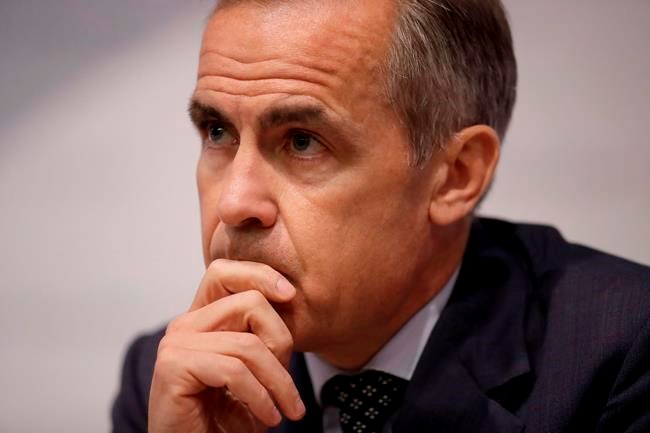OTTAWA — Former Bank of Canada governor Mark Carney says a global recession is likely, making it challenging for Canada to avoid a similar economic downturn.
While testifying before the Senate banking committee on Thursday, Carney said Canada may fare better than others because of mitigating factors such as the country's ties to the U.S. as well as the strong labour market recovery after the pandemic.
A growing number of economists are now forecasting Canada will enter a recession as the Bank of Canada and other central banks across the globe raise interest rates to cool high inflation.
Although inflation has been slowing in recent months, the pace of price growth is still exceptionally high and well above the Bank of Canada's two per cent target.
In September, Canada's annual inflation rate was 6.9 per cent.
In an apparent shift in tone about the state of the economy, Deputy Prime Minister Chrystia Freeland warned Canadians this week that tough times are ahead as the economy reacts to higher interest rates.
"Mortgage payments will rise. Business will no longer be booming," Freeland said. "Our unemployment rate will no longer be at its record low."
The Bank of Canada has raised its key interest rate five times since March, bringing it to 3.25 per cent from 0.25 per cent. The rate hikes are feeding into higher borrowing costs for Canadians and businesses, which should slow spending in the economy.
Despite raising rates at one of the fastest paces in its history, the central bank has warned interest rates will have to go higher to cool high inflation. On Wednesday, it is expected to deliver another sizable interest rate increase.
Carney commended the Bank of Canada "moving smartly and aggressively to tighten interest rates."
In response to a question about what caused high inflation in Canada, Carney said it was first set off by global circumstances but has since evolved into a domestic problem.
The former governor, who also served as the governor of the Bank of England, said rising commodity prices and supply chain issues fuelled inflation during the pandemic, but since then, inflation has broadened into more sectors of the economy.
Carney said while the pandemic support measures were necessary when COVID-19 hit, they went on for too long and fuelled inflation.
"With 20/20 hindsight — and hindsight is always 20/20 — that package arguably went on for a little longer than was strictly required," Carney said.
The former governor said the current economic situation requires fiscal restraint, though targeted supports are appropriate.
"This is a time to reduce deficits in my opinion, not increase them."
This report by The Canadian Press was first published Oct. 20, 2022.
The Canadian Press



